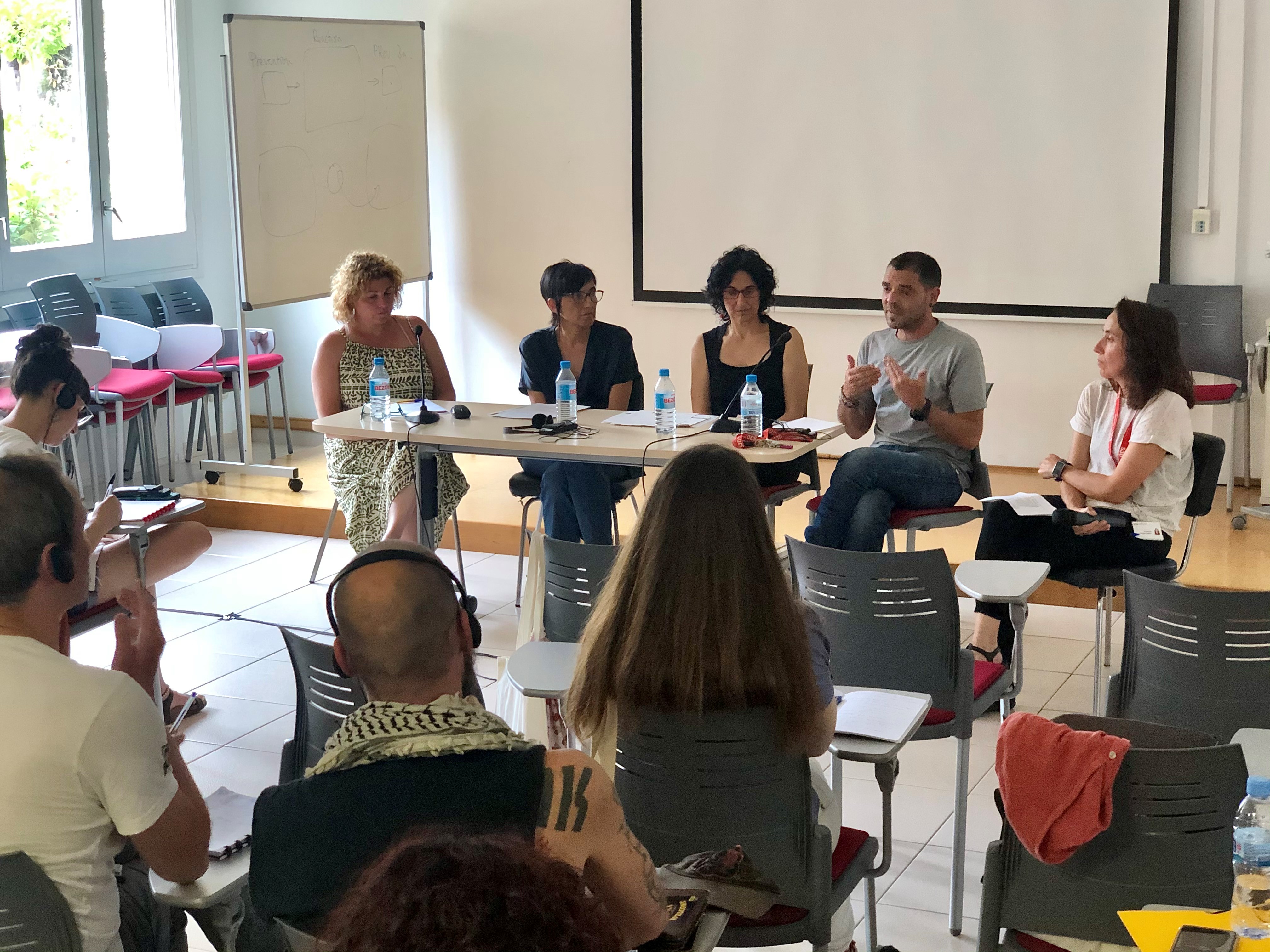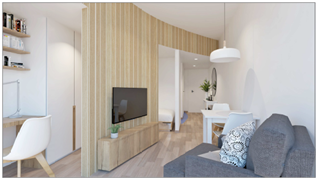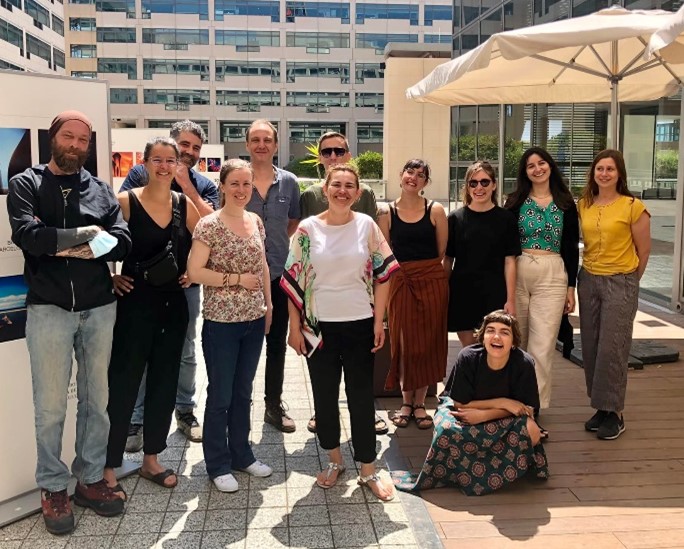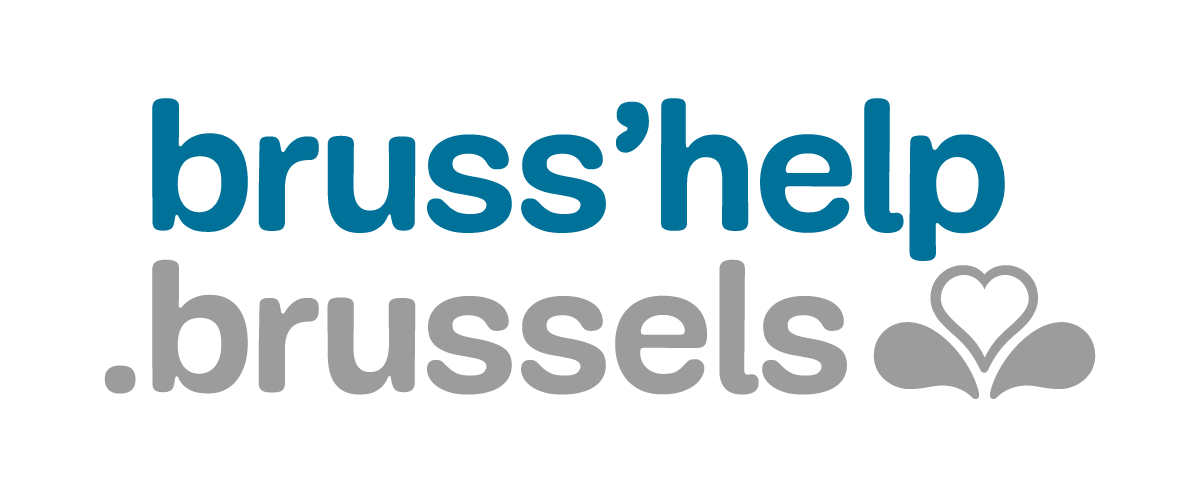The INSULA model, a coordinated response for access to housing
June, 21th, 2022
As part of the Rights First project to facilitate access to social rights for vulnerable people, our team of partners went to Barcelona to study the partnership model developed by the Insula project.
 |
In 2018, four organisations that were working independently decided to join forces to face a common challenge: the increase in the number of homeless people in a context of rent inflation in Barcelona.
These four partners had the same goal, which is to provide joint responses to the needs of these people, particularly in the areas of accommodation and employment. This is how the Insula project was born: an innovative project since, for the first time, non-profit organisations working for the homeless are joining forces to form a residential care network. |
To provide a comprehensive response and a global approach to support people (social support, access to housing, financial support and improving employability and access to the labour market), each of the entities is involved based on their respective expertise and experience:
Sant Joan de Déu: Created in 1979, it is a reference entity in social action in Catalonia. It works in the field of the right to housing, offering comprehensive and personalised care to homeless people. It is the coordinating entity of the Insula project and provides socio-educational support for the beneficiaries.
Mambré Foundation: It works to meet the housing and employment needs of the homeless. Within the framework of the project, its mission is to search for housing, formalise contracts and renewals, collect rents, maintain the housing, and manage rental subsidies.
Caritas: This is a Catholic organisation that aims to welcome and work with people in need to empower them. As a partner in the insula project, it is responsible for psychological and legal support.
Formacio i treball Foundation: The aim of this organisation is to train and employ people at risk of social exclusion and to manage the delivery of clothes, furniture, and other household equipment to vulnerable families. It intervenes in the Insula project to personalise the follow-up, to support the beneficiaries in the search for employment and in their integration within a company.
The strengths of the Insula project.
After having met these actors and exchanged at length with the representatives on their alliance and their mode of operation, here are the three points that we retained:
1) The relevance of a methodology that distinguishes between the right to housing and social support.
 |
Insula wants to provide a response that preserves people's autonomy and values their skills and resources. For this reason, the project does not only deal with access to housing, but also offers them social support, economic support and improved employment and access to the labour market. |
It is therefore based on the Housing First methodology but emphasises the importance of personalised social support: people on the street have different needs and cannot receive the same services. Therefore, the project separates social support and access to housing. Securing housing is the starting point for improving many other aspects of the beneficiaries' lives.
2) The importance of identifying the phases of social support
The type of support provided to clients is adapted throughout the service through the definition of different phases. People need a closer support depending on the stages they are going through. To best meet this need, the partners identify three phases, each of which requires different levels of monitoring and intervention:
- Phase 1: Listening and detecting difficulties. These difficulties can be the language barrier or difficulties in understanding (environment, networking), difficulties in retaining information...
Type of support: Visit every 15 days and a minimum of one call per week
- Phase 2: Creation of a tailor-made support plan. Depending on the difficulties identified, the partners define a plan relating to economic management, training and/or professional situation, relational network, employment situation, state of health, housing management...
Type of support: Visit once a month and occasional calls.
- Phase 3: Consolidation of achievements to accompany towards complete autonomy. The objective here is to consolidate the economic situation, the stable relational/family network, the stability of employment, the stability of health, the autonomy in the management of housing, the connection with external supports...
Type of support: Visit once a month and/or phone call.
3) The need for mutual trust between the different actors.
During the project presentation the partners highlighted that the level of trust is an essential aspect of the success of such an association. The social sector has been talking about partnership for some time, but on an operational point, faith in the project and in the entities involved is essential.
The four partners explain to us that they ultimately work like a production line: they separate the support process into different phases in which each worker carries out a specific task and maintain strong exchanges to ensure the fluidity of the process. For example, information is shared between the organisations and each is responsible for updating it. They are therefore all fully involved in the process and work with a principle of transparency for the success of their common project.
Alone, we go faster. Together, we go further.
To measure the success of their support, the evaluation system links both quantitative indicators (economic situation) and qualitative indicators (physical and mental health, level of cohabitation within the house and with the neighborhood, self-perception, etc.). "The main indicator of success is when people stop needing us”.
When talking about the challenges of tomorrow, the Insula partners however agree that this system is not sustainable, as it is only a reaction to a deeper problem. Raising awareness of the housing problem behind homelessness remains their main challenge for the future.
 |
A possible adaptation within the Brussels landscape? Many thanks to Sant Joan de Déu and its partners for this inspiring experience sharing. We are going back to Brussels the head plenty of ideas to carry out our project.
|
All information disclosed reflects the opinion of the author only. The European Commission is not responsible for any use that may be made of the information.
![]()




